I am working on an undirected graph problem. I have a Node class which contains nodeName and List<Edge>. Then I have Edge class which holds Node start, Node end and weight. And finally I have a Graph class which has one instance variable Map<String, Node>.
I want to add all distinct edges to a set and order them in an increasing order based on their edge weight. Hence I chose TreeSet to store all the edges in an unique sorted fashion. But when I call the addAllEdges() it doesn't add all the edges. The graph has 9 vertices and 14 edges. However the treeSet saves only 10 of those.
Code Structure:
Graph:
class Graph {
private Map<String, Node> verticesMap = new HashMap<>();
public void addEdge(String src, String dest, int weight) {
Node srcNode = verticesMap.get(src) == null ? new Node(src) : verticesMap.get(src);
Node destNode = verticesMap.get(dest) == null ? new Node(dest) : verticesMap.get(dest);
Edge edge = new Edge(srcNode, destNode, weight);
srcNode.getEdgeList().add(edge);
verticesMap.put(src, srcNode);
verticesMap.put(dest, destNode);
}
public Set<Edge> addAllEdges() {
Set<Edge> allEdgesSet = new TreeSet<>(getComparatorBasedOnEdgeWeight());
for (Node node : verticesMap.values()) {
for (Edge edge : node.getEdgeList()) {
// sysout for debugging purpose only
if(allEdgesSet.add(edge)) {
System.out.println("Added edge: " + edge);
} else {
System.out.println("Did not add edge: " + edge);
}
}
}
return allEdgesSet;
}
private Comparator<Edge> getComparatorBasedOnEdgeWeight() {
return (e1, e2) -> Integer.compare(e1.getWeight(), e2.getWeight());
}
}
Node:
class Node {
private String name;
private List<Edge> edgeList;
public Node(String name) {
this.name = name;
edgeList = new ArrayList<>();
}
@Override
public int hashCode() {
final int prime = 31;
int result = 1;
result = prime * result + ((name == null) ? 0 : name.hashCode());
return result;
}
@Override
public boolean equals(Object obj) {
if (this == obj)
return true;
if (obj == null)
return false;
if (getClass() != obj.getClass())
return false;
Node other = (Node) obj;
if (name == null) {
if (other.name != null)
return false;
} else if (!name.equals(other.name))
return false;
return true;
}
@Override
public String toString() {
return name;
}
}
Edge:
class Edge {
private Node src;
private Node dest;
private int weight;
public Edge(Node src, Node dest, int weight) {
this.src = src;
this.dest = dest;
this.weight = weight;
}
@Override
public int hashCode() {
final int prime = 31;
int result = 1;
result = prime * result + ((dest == null) ? 0 : dest.hashCode());
result = prime * result + ((src == null) ? 0 : src.hashCode());
return result;
}
@Override
public boolean equals(Object obj) {
if (this == obj)
return true;
if (obj == null)
return false;
if (getClass() != obj.getClass())
return false;
Edge other = (Edge) obj;
if (dest == null) {
if (other.dest != null)
return false;
} else if (!dest.equals(other.dest))
return false;
if (src == null) {
if (other.src != null)
return false;
} else if (!src.equals(other.src))
return false;
return true;
}
@Override
public String toString() {
return src + "-->" + dest + "[" + weight + "]";
}
}
Test:
public class Test {
public static void main(String[] args) {
Graph graph = new Graph();
graph.addEdge("A", "B", 4);
graph.addEdge("B", "A", 4);
graph.addEdge("A", "I", 8);
graph.addEdge("I", "A", 8);
graph.addEdge("B", "C", 8);
graph.addEdge("C", "B", 8);
graph.addEdge("B", "I", 11);
graph.addEdge("I", "B", 11);
graph.addEdge("C", "H", 2);
graph.addEdge("H", "C", 2);
graph.addEdge("C", "D", 7);
graph.addEdge("D", "C", 7);
graph.addEdge("C", "F", 4);
graph.addEdge("F", "C", 4);
graph.addEdge("H", "I", 7);
graph.addEdge("I", "H", 7);
graph.addEdge("H", "G", 6);
graph.addEdge("G", "H", 6);
graph.addEdge("I", "G", 1);
graph.addEdge("G", "I", 1);
graph.addEdge("G", "F", 2);
graph.addEdge("F", "G", 2);
graph.addEdge("F", "D", 14);
graph.addEdge("D", "F", 14);
graph.addEdge("F", "E", 10);
graph.addEdge("E", "F", 10);
graph.addEdge("E", "D", 9);
graph.addEdge("D", "E", 9);
graph.addAllEdges();
}
}
Output:
Added edge: A-->B[4]
Added edge: A-->I[9]
Did not add edge: B-->A[4]
Added edge: B-->C[8]
Added edge: B-->I[11]
Did not add edge: C-->B[8]
Added edge: C-->H[2]
Added edge: C-->D[7]
Did not add edge: C-->F[4]
Did not add edge: D-->C[7]
Added edge: D-->F[14]
Did not add edge: D-->E[9]
Added edge: E-->F[10]
Did not add edge: E-->D[9]
Did not add edge: F-->C[4]
Did not add edge: F-->G[2]
Did not add edge: F-->D[14]
Did not add edge: F-->E[10]
Added edge: G-->H[6]
Added edge: G-->I[1]
Did not add edge: G-->F[2]
Did not add edge: H-->C[2]
Did not add edge: H-->I[7]
Did not add edge: H-->G[6]
Did not add edge: I-->A[9]
Did not add edge: I-->B[11]
Did not add edge: I-->H[7]
Did not add edge: I-->G[1]
Edges in the TreeSet:
[G-->I[1], C-->H[2], A-->B[4], G-->H[6], C-->D[7], B-->C[8], A-->I[9], E-->F[10], B-->I[11], D-->F[14]]
The output above shows that it is iterating through 28 edges (14 vertices * 2). I am not able to figure out why treeSet is returning false for those edges which aren't even present in the set yet.
